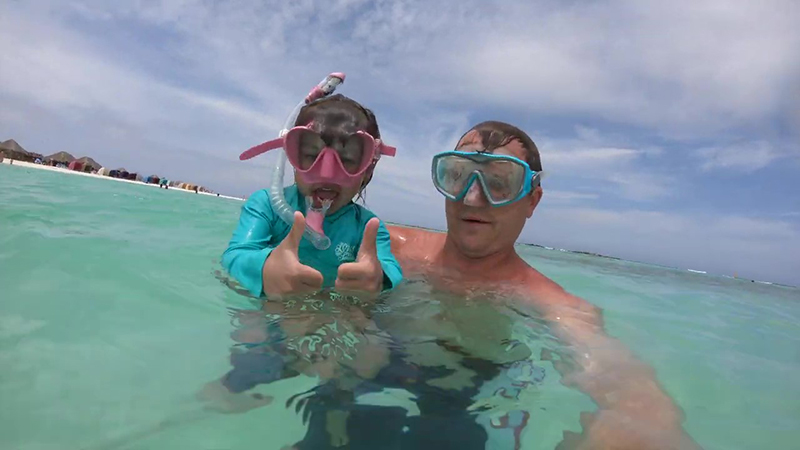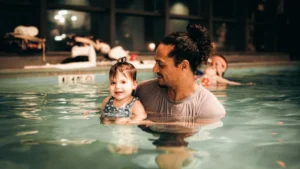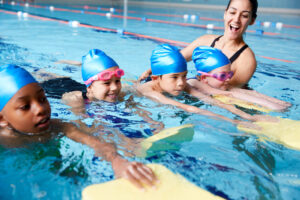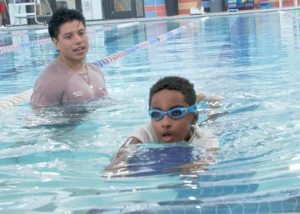Spring Vacation is the Perfect Time to Review Water Safety for Kids and Adults
The arrival of spring means warmer weather, spring break vacations, and many aquatic opportunities, including beach trips, pool parties, and lakeside activities.
While getting caught up in the excitement of vacation mode is easy, it’s time to prioritize water safety so these experiences remain joyful and memorable.
Stay Safe Around Water: Understanding Water Risks
Before diving into water activities this spring, let’s look at the potential hazards associated with aquatic adventures. Drowning is the leading cause of accidental injury-related death among children 1-4. It’s not just children who are at risk in and around water. Nearly half of adults in the US can’t swim properly and can’t save themselves or others in an emergency.
It’s essential to choose safe water environments and ensure all participants have water confidence to lessen the impact of these risks.
If you’re planning to visit a beach or a lake, take the time to assess water conditions and avoid areas with strong currents, undertows, or murky water that may pose a risk.
Know Your Limits in the Water
One of the most important water safety tips is to swim within your abilities and comfort levels.
Be honest with yourself and your children about swimming skills. Don’t overestimate your capabilities. The Red Cross discovered that while 80% of adults claimed they could swim, 44% realized they would fail a basic swim test.
Here are the five basic skills to assess your water competency:
- Floating or treading for 1 minute
- Jumping into deep water and coming up for air
- Spinning around in the water and then finding a way out
- Exiting the pool without a ladder
- Swimming one pool length without stopping
While these skills seem uncomplicated, a fun intro to spring water safety might be to test all family members during your next pool visit to identify areas of improvement.
Buddy System & Supervision
Water activities are always safer when you’re swimming with other people.
Implement the ‘Buddy System’ when you head to the lake, river, or pool. The buddy system is especially important for children and inexperienced swimmers. This way, someone is always watching for dangers and can quickly alert the rest of the group when necessary.
Adult supervision is essential— even with experienced and confident swimmers. It only takes a moment for a situation to escalate, and having a responsible, sober adult present can make a world of difference in an emergency scenario.
Stay Well-Hydrated and Rested
While it may seem counterintuitive, staying hydrated is crucial— even in water!
Prolonged exposure to sun, heat, and physical activity can lead to dehydration, which can impact judgment and increase the risk of accidents. Remember to drink plenty of fluids throughout the day and take breaks to rest in the shade.
Fatigue can also contribute to water-related accidents. When you’re tired, your reflexes and decision-making abilities are compromised. Plan water activities for when you’re well-rested and alert. Don’t hesitate to take a break to rest.
Safer Water Activities
For those who lack essential survival swim skills or confidence, you may opt for safer water activities.
Here are some fun water activities for you to enjoy during spring break:
Wading Pools and Shallow Areas: This allows you to enjoy the water without the risks of going too deep for your comfort. Always make sure you have proper supervision and stay within designated areas.
Water Parks and Splash Pads: These public areas have safety in mind. Lifeguards are always on duty, and you’ll find plenty of shallow pools and gentle water.
Backyard Fun with Sprinklers: Sprinklers keep everyone safe in one contained area, making them a great option for anyone who loves water but doesn’t want to fully submerge.
Swimming Lessons: Get your water fix while gaining essential water skills. WeAquatics’ patient, certified instructors provide the best environment to improve your weaknesses and strengthen your skills while gaining water confidence.
Stay Safe Around Water with Essential Safety Skills
The best way to prevent water-related accidents is with proper survival swim skills.
Essential water safety skills reduce your risk of drowning by 88% when you learn valuable water safety skills like:
- Float
- Turn over
- Breathe
- Tread water
- Swim to safety
Babies as young as six months old can learn these basic skills to assist them during an emergency. Through constant practice, muscle memory takes shape, and little ones know what to do to help them survive.
Water Safety at WeAquatics
Whether you’re a beginner or an experienced swimmer, WeAquatics offers private swim classes for ages six months and up. Each class is designed to assess and build on your survival swim skills so that you can confidently – and safely – enjoy spring’s best water activities.
As you plan your upcoming spring break schedule, prioritize enrolling in swim lessons to boost your water skills, choosing the best environment, and assessing your skills to stay safe around water.





